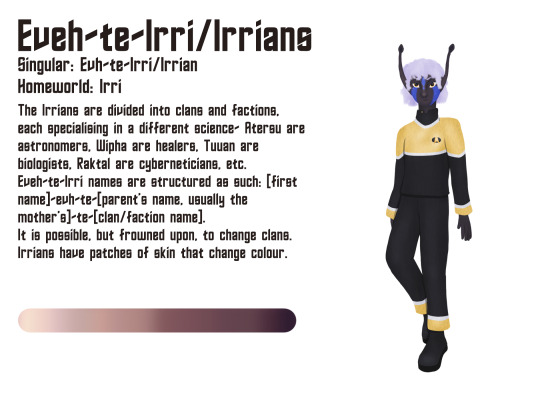#writing improvement
Explore tagged Tumblr posts
Text
The darkness that surrounded Gotham was heavy with tension as you stood outside the abandoned warehouse, heart racing. Jason’s silhouette emerged from the shadows, the familiar leather jacket framing his figure like a shroud. He looked worn, the weight of his choices evident in the way he carried himself.
“Why did you follow me?” he asked, his voice low and edged with irritation.
You took a breath, trying to keep your emotions in check. “Because you’re pushing everyone away, Jason. You can’t keep doing this.”
He scoffed, crossing his arms defensively. “You think I care about what you or anyone else thinks? I don’t need anyone, especially not now.”
“Is that really how you feel?” Your voice cracked, desperation creeping in. “You’re not alone. You never have to be. But you make it so damn hard to reach you.”
Jason’s gaze darkened, anger mixing with pain. “You don’t know what it’s like! To feel betrayed, to lose everything! I won’t let you get hurt because of me.”
“I’m already hurting!” you shot back, the words bursting forth. “You’re hurting me more by shutting me out! I want to help you, but you won’t let me in.”
He turned away, fists clenching. “I don’t want your help. I don’t want anyone’s pity. You think this is some kind of game? I’m not the hero you want me to be.”
Your heart ached as you took a step closer, defiance fueling your voice. “I never wanted a hero. I wanted you—the real you. But you keep hiding behind this mask of anger.”
Silence fell between you, the air thick with unresolved feelings. Finally, Jason turned to you, vulnerability flickering behind his hardened exterior. “If you knew the truth, you’d run away. I don’t deserve this… I don’t deserve you.”
“Don’t say that,” you pleaded, tears welling in your eyes. “You’re worth so much more than your past mistakes. I see you, Jason—the man beneath the pain.”
He shook his head, pain etched on his face. “The man beneath is broken. I can’t drag you into that darkness.”
“Maybe I want to stand with you in that darkness,” you said, voice trembling. “I’d rather face it together than watch you drown in it alone.”
His expression wavered, the conflict evident. But the walls he built were strong, and he was reluctant to let them crumble. “You don’t understand what it means to love someone like me,” he replied, voice thick with emotion.
“Then let me show you,” you whispered, reaching out for him.
For a moment, you thought he might take your hand. But then he stepped back, the distance between you feeling insurmountable. “I can’t. I won’t let you get hurt because of me.”
As he turned and disappeared into the shadows, you felt the weight of his choices press down on you. Love was supposed to be a light in the dark, but in that moment, it felt like a curse—a reminder of what could have been.
A/N: Hi everyone! I’ve finally gotten a break and so here I am, writing the much promised angst😅 hopefully over break I can do more. This was based off of a fanfic i saw a while back. Love you all, and happy halloween 🎃
#batboys#dc comics#jason todd x reader#batfam#dc#jason todd#dcu#light angst#sum slight#writing improvement#jason todd angst#arkham knight x you#jt x reader#jason peter todd
84 notes
·
View notes
Text
No one ever tells you that you can scarcely turn your writing brain off once you start developing it. Like trying to write a regular old essay and just spilling fancy words and different sentence structures onto the page, more so than most teachers would require. I drastically over do it, but like my prose are fire.
#writing woes#writing advice#writing exercise#novel writing#prose#writing prose#writing funny#writing#creative writing#writeblr#on writing#writing humor#books#writer community#aspiring writer#writers block#writers#writer#writers on tumblr#ao3 writer#writers and poets#writerscommunity#writer stuff#female writers#fanfiction#original story#fiction#had to write one for the first time in forever recently and my prose have come far#writing improvement#writblr
35 notes
·
View notes
Text

#writing community#writers on tumblr#writer stuff#writeblr#writers#original writing#relatable#book writing#girl blogger#wattpad writer#wattpad#female writers#writer things#book writers#growth#work in progress#writing progress#improve#improvement#writing improvement#writing a book
29 notes
·
View notes
Text
𝔹𝕃𝕌ℝ��� 18+


𝐎𝐧𝐞 𝐭𝐡𝐢𝐧𝐠 𝐚𝐛𝐨𝐮𝐭 𝐉𝐉 𝐢𝐬 𝐭𝐡𝐚𝐭 𝐡𝐞'𝐬 𝐠𝐨𝐧𝐧𝐚 𝐛𝐞 𝐪𝐮𝐢𝐭𝐞 𝐭𝐡𝐞 𝐩𝐞𝐫𝐬𝐢𝐬𝐭𝐞𝐧𝐭 𝐌𝐅.. 𝐀𝐍𝐃 𝐭𝐡𝐚𝐭 𝐢𝐧𝐜𝐥𝐮𝐝𝐞𝐬 𝐰𝐡𝐞𝐧 𝐡𝐞'𝐬 𝐤𝐢𝐬𝐬𝐢𝐧𝐠 𝐡𝐢𝐬 𝐠𝐢𝐫𝐥𝐢𝐞.. 𝐛𝐮𝐭 𝐢𝐭'𝐬 𝐧𝐞𝐯𝐞𝐫 𝐉𝐔𝐒𝐓 𝐤𝐢𝐬𝐬𝐢𝐧𝐠 𝐰𝐢𝐭𝐡 𝐡𝐢𝐦 𝐢𝐬 𝐢𝐭..?
.
.
.
𝐊𝐢𝐬𝐬.. 𝐊𝐢𝐬𝐬.. 𝐊𝐢𝐬𝐬... 𝐉𝐉'𝐬 𝐩𝐫𝐞𝐭𝐭𝐲 𝐥𝐢𝐩𝐬 𝐜𝐨𝐧𝐭𝐢𝐧𝐮𝐞𝐝 𝐭𝐨 𝐚𝐭𝐭𝐚𝐜𝐤 𝐌𝐞𝐫𝐜𝐞𝐝𝐞𝐬' 𝐩𝐥𝐮𝐦𝐩𝐬 𝐨𝐧𝐞𝐬 𝐚𝐬 𝐭𝐡𝐞𝐲 𝐜𝐨𝐧𝐭𝐢𝐧𝐮𝐞𝐝 𝐭𝐡𝐞𝐢𝐫 𝐟𝐢𝐫𝐬𝐭 𝐦𝐚𝐤𝐞-𝐨𝐮𝐭 𝐬𝐞𝐬𝐡. 𝐖𝐡𝐚𝐭 𝐭𝐡𝐞 𝐤𝐨𝐨𝐤 𝐝𝐢𝐝𝐧'𝐭 𝐞𝐱𝐩𝐞𝐜𝐭 𝐰𝐚𝐬 𝐟𝐨𝐫 𝐭𝐡𝐞 𝐬𝐮𝐫𝐟𝐞𝐫 𝐛𝐨𝐲 𝐭𝐨 𝐪𝐮𝐢𝐭𝐞 𝐥𝐢𝐭𝐞𝐫𝐚𝐥𝐥𝐲 𝐬𝐭𝐞𝐚𝐥 𝐡𝐞𝐫 𝐛𝐫𝐞𝐚𝐭𝐡 𝐚𝐰𝐚𝐲. 𝐄𝐚𝐜𝐡 𝐟𝐞𝐫𝐚𝐥 𝐤𝐢𝐬𝐬 𝐚𝐟𝐭𝐞𝐫 𝐭𝐡𝐞 𝐨𝐭𝐡𝐞𝐫 𝐚 𝐰𝐞𝐥𝐥 𝐜𝐫𝐚𝐟𝐭𝐞𝐝 𝐥𝐨𝐯𝐞 𝐥𝐞𝐭𝐭𝐞𝐞 𝐛𝐞𝐢𝐧𝐠 𝐭𝐨 𝐡𝐞𝐫 𝐭𝐡𝐨𝐮𝐠𝐡𝐭𝐬, 𝐰𝐡𝐢𝐜𝐡 𝐰𝐞𝐧𝐭 '𝐩𝐨𝐨𝐟' 𝐰𝐡𝐞𝐧 𝐭𝐡𝐞 𝐩𝐨𝐨𝐫 𝐠𝐢𝐫𝐥 𝐟𝐞𝐥𝐭 𝐭𝐡𝐞 𝐢𝐧𝐭𝐨𝐱𝐢𝐜𝐚𝐭𝐢𝐨𝐧 𝐠𝐫𝐢𝐩 𝐨𝐟 𝐡𝐢𝐬 𝐡𝐚𝐧𝐝𝐬 𝐭𝐨 𝐡𝐞𝐞 𝐰𝐚𝐢𝐬𝐭.
𝐓𝐡𝐞 𝐰𝐚𝐲 𝐭𝐡𝐞 𝐫𝐞𝐛𝐞𝐥𝐥𝐢𝐨𝐮𝐬 𝐛𝐨𝐲 𝐛𝐥𝐚𝐭𝐚𝐧𝐭𝐥𝐲, 𝐬𝐡𝐚𝐦𝐞𝐥𝐞𝐬𝐬𝐥𝐲 𝐲𝐞𝐚𝐫𝐧𝐞𝐝 𝐟𝐨𝐫 𝐦𝐨𝐫𝐞 𝐰𝐢𝐭𝐡 𝐞𝐚𝐜𝐡 𝐝𝐞𝐞𝐩𝐞𝐧𝐢𝐧𝐠 𝐨𝐟 𝐭𝐡𝐞𝐢𝐫 𝐢𝐧𝐭𝐞𝐫𝐭𝐰𝐢𝐧𝐢𝐧𝐠 𝐡𝐚𝐝 𝐌𝐞𝐫𝐜𝐞𝐝𝐞𝐬 𝐦𝐞𝐥𝐭𝐢𝐧𝐠. 𝐈𝐭 𝐰𝐚𝐬𝐧'𝐭 𝐢𝐧𝐧𝐨𝐜𝐞𝐧𝐭 𝐞𝐢𝐭𝐡𝐞𝐫. 𝐓𝐡𝐞𝐲 𝐰𝐞𝐫𝐞 𝐡𝐞𝐚𝐭𝐞𝐝𝐥𝐲 𝐬𝐮𝐜𝐤𝐢𝐧𝐠 𝐟𝐚𝐜𝐞 𝐮𝐧𝐭𝐢𝐥 𝐭𝐡𝐞 𝐤𝐨𝐨𝐤 𝐩𝐫𝐢𝐧𝐜𝐞𝐬𝐬 𝐩𝐮𝐥𝐥𝐞𝐝 𝐚𝐰𝐚𝐲 𝐟𝐨𝐫 𝐚𝐢𝐫. 𝐇𝐞𝐫 𝐟𝐥𝐮𝐬𝐭𝐞𝐫𝐞𝐝, 𝐡𝐚𝐳𝐲 𝐞𝐱𝐩𝐫𝐞𝐬𝐬𝐢𝐨𝐧 𝐭𝐨𝐥𝐝 𝐉𝐉 𝐞𝐯𝐞𝐫𝐲𝐭𝐡𝐢𝐧𝐠 𝐡𝐞 𝐧𝐞𝐞𝐝𝐞𝐝 𝐭𝐨 𝐤𝐧𝐨𝐰 𝐞𝐯𝐞𝐧𝐧𝐢𝐟 𝐬𝐡𝐞 𝐩𝐮𝐥𝐥𝐞𝐝 𝐚𝐰𝐚𝐲 𝐬𝐡𝐲𝐥𝐲.
"..𝐰𝐡𝐚𝐭?" 𝐂𝐞𝐝𝐞𝐬 𝐰𝐨𝐮𝐥𝐝 𝐚𝐬𝐤 𝐚𝐟𝐭𝐞𝐫 𝐰𝐢𝐭𝐧𝐞𝐬𝐬𝐢𝐧𝐠 𝐚 𝐬𝐦𝐢𝐫𝐤 𝐬𝐡𝐞 𝐤𝐧𝐞𝐰 𝐚𝐥𝐥 𝐭𝐨𝐨 𝐰𝐞𝐥𝐥 𝐜𝐮𝐫𝐥 𝐮𝐩 𝐨𝐧 𝐉𝐉'𝐬 𝐟𝐚𝐜𝐞. 𝐈𝐭 𝐫𝐞𝐦𝐚𝐢𝐧𝐞𝐝 𝐚𝐬 𝐡𝐞 𝐥𝐞𝐚𝐧𝐞𝐝 𝐢𝐧 𝐧𝐞𝐚𝐫 𝐚 𝐝𝐢𝐟𝐟𝐞𝐫𝐞𝐧𝐭 𝐬𝐩𝐨𝐭, 𝐡𝐢𝐬 𝐤𝐢𝐬𝐬-𝐛𝐫𝐮𝐢𝐬𝐞𝐝 𝐥𝐢𝐩𝐬 𝐩𝐥𝐚𝐧𝐭𝐢𝐧𝐠 𝐚 𝐟𝐞𝐰 𝐩𝐞𝐜𝐤𝐬 𝐨𝐧 𝐡𝐞𝐫 𝐥𝐞𝐟𝐭 𝐞𝐚𝐫. 𝐎𝐧 𝐢𝐧𝐬𝐭𝐢𝐧𝐜𝐭, 𝐭𝐡𝐞 𝐩𝐨𝐨𝐫 𝐠𝐢𝐫𝐥 𝐰𝐢𝐧𝐜𝐞𝐝, 𝐬𝐨𝐨𝐧 𝐟𝐞𝐞𝐥𝐢𝐧𝐠 𝐡𝐞𝐫 𝐰𝐫𝐢𝐬𝐭𝐬 𝐛𝐞𝐢𝐧𝐠 𝐩𝐢𝐧𝐧𝐞𝐝 𝐛𝐞𝐬𝐢𝐝𝐞 𝐡𝐞𝐫 𝐩𝐫𝐞𝐭𝐭𝐲 𝐥𝐢𝐭𝐭𝐥𝐞 𝐡𝐞𝐚𝐝. 𝐒𝐡𝐞 𝐰𝐚𝐬𝐧'𝐭 𝐬𝐮𝐫𝐞 𝐰𝐡𝐚𝐭 𝐰𝐚𝐬 𝐡𝐚𝐩𝐩𝐞𝐧𝐢𝐧𝐠 𝐚𝐭 𝐟𝐢𝐫𝐬𝐭, 𝐛𝐮𝐭 𝐭𝐡𝐞𝐧 𝐬𝐡𝐞 𝐟𝐞𝐥𝐭 𝐭𝐡𝐞 𝐦𝐢𝐧𝐝 𝐧𝐮𝐦𝐛𝐢𝐧𝐠 𝐤𝐢𝐬𝐬𝐞𝐬 𝐬𝐨𝐦𝐞𝐰𝐡𝐞𝐫𝐞 𝐞𝐥𝐬𝐞. 𝐇𝐞𝐫 𝐞𝐚𝐫, 𝐣𝐚𝐰𝐥𝐢𝐧𝐞, 𝐧𝐞𝐜𝐤, 𝐞𝐯𝐞𝐫𝐲 𝐢𝐧𝐜𝐡 𝐨𝐟 𝐡𝐞𝐫 𝐫𝐢𝐜𝐡 𝐦𝐞𝐥𝐚𝐧𝐢𝐧 𝐬𝐤𝐢𝐧 𝐛𝐞𝐢𝐧𝐠 𝐧𝐢𝐩𝐩𝐞𝐝 𝐚𝐧𝐝 𝐬𝐮𝐜𝐤𝐞𝐝 𝐚𝐭 𝐰𝐢𝐭𝐡 𝐚 𝐧𝐞𝐰 𝐟𝐨𝐮𝐧𝐝 𝐩𝐫𝐞𝐜𝐢𝐬𝐢𝐨𝐧.
𝐈𝐧 𝐫𝐞𝐬𝐩𝐨𝐧𝐬𝐞, 𝐂𝐞𝐝𝐞𝐬 𝐠𝐥𝐞𝐞𝐟𝐮𝐥𝐥𝐲 𝐥𝐞𝐭𝐬 𝐨𝐮𝐭 𝐭𝐡𝐞 𝐬𝐰𝐞𝐞𝐭 𝐰𝐡𝐢𝐦𝐩𝐞𝐫𝐬 𝐉𝐉 𝐡𝐚𝐬 𝐞𝐯𝐞𝐫 𝐡𝐞𝐚𝐫𝐝, 𝐛𝐮𝐭 𝐰𝐡𝐚𝐭 𝐫𝐞𝐚𝐥𝐥𝐲 𝐠𝐨𝐭 𝐡𝐢𝐦 𝐧𝐞𝐞𝐝𝐲 𝐰𝐚𝐬 𝐭𝐡𝐞 𝐧𝐚𝐦𝐞 𝐜𝐚𝐥𝐥 𝐡𝐞 𝐟𝐨𝐫𝐜𝐞𝐝 𝐨𝐮𝐭 𝐨𝐟 𝐡𝐞𝐫. 𝐈𝐭 𝐰𝐚𝐬 𝐝𝐨𝐰𝐧 𝐫𝐢𝐠𝐡𝐭 𝐩𝐨𝐫𝐧𝐨𝐠𝐫𝐚𝐩𝐡𝐢𝐜, 𝐚𝐧𝐝 𝐞𝐧𝐨𝐮𝐠𝐡 𝐭𝐨 𝐨𝐧𝐜𝐞 𝐚𝐠𝐚𝐢𝐧 𝐡𝐚𝐯𝐞 𝐡𝐢𝐬 𝐥𝐢𝐩𝐬 𝐥𝐨𝐜𝐤𝐞𝐝 𝐚𝐠𝐚𝐢𝐧𝐬𝐭 𝐡𝐞𝐫𝐬 𝐰𝐡𝐢𝐥𝐞 𝐨𝐧𝐞 𝐨𝐟 𝐡𝐢𝐬 𝐡𝐚𝐧𝐝𝐬 𝐭𝐫𝐚𝐯𝐞𝐥𝐞𝐝 𝐝𝐨𝐰𝐧 𝐚𝐧𝐝 𝐢𝐧 𝐡𝐞𝐫 𝐜𝐮𝐭𝐞 𝐩𝐢𝐧𝐤 𝐬𝐡𝐨𝐫𝐭𝐬. 𝐓𝐡𝐞 𝐬𝐭𝐫𝐚𝐧𝐠𝐥𝐞𝐝 𝐠𝐫𝐨𝐚𝐧 𝐭𝐡𝐚𝐭 𝐞𝐬𝐜𝐚𝐩𝐞𝐝 𝐡𝐢𝐦 𝐚𝐭 𝐭𝐡𝐞 𝐟𝐢𝐫𝐬𝐭 𝐟𝐞𝐞𝐥 𝐨𝐟 𝐡𝐞𝐫 𝐬𝐢𝐥𝐤𝐞𝐧 𝐟𝐨𝐥𝐝𝐬 𝐚𝐠𝐚𝐢𝐧𝐬𝐭 𝐡𝐢𝐬 𝐜𝐡𝐚𝐟𝐭𝐞𝐝 𝐝𝐢𝐠𝐢𝐭𝐬 𝐰𝐚𝐬 𝐝𝐨𝐰𝐧𝐫𝐢𝐠𝐡𝐭 𝐟𝐞𝐫𝐚𝐥. 𝐀𝐧𝐨𝐭𝐡𝐞𝐫 𝐦𝐨𝐚𝐧 𝐞𝐬𝐜𝐚𝐩𝐞𝐝 𝐡𝐞𝐫 𝐩𝐫𝐞𝐭𝐭𝐲, 𝐬𝐰𝐨𝐥𝐥𝐞𝐧 𝐥𝐢𝐩𝐬 𝐰𝐡𝐞𝐧 𝐬𝐡𝐞 𝐟𝐞𝐥𝐭 𝐜𝐚𝐥𝐥𝐨𝐮𝐬𝐞𝐝 𝐟𝐢𝐧𝐠𝐞𝐫𝐬 𝐭𝐞𝐧𝐝 𝐭𝐨 𝐡𝐞𝐫 𝐬𝐨𝐩𝐩𝐢𝐧𝐠 𝐰𝐞𝐭 𝐜𝐮𝐧𝐭. 𝐇𝐞 𝐰𝐚𝐬𝐭𝐞𝐝 𝐚𝐛𝐬𝐨𝐥𝐮𝐭𝐞𝐥𝐲 𝐧𝐨 𝐭𝐢𝐦𝐞 𝐢𝐧 𝐬𝐡𝐨𝐰𝐢𝐧𝐠 𝐨𝐟𝐟 𝐡𝐢𝐬 𝐬𝐤𝐢𝐥𝐥𝐬. 𝐖𝐢𝐭𝐡 𝐞𝐚𝐜𝐡 𝐜𝐚𝐫𝐫𝐞𝐬𝐬 𝐡𝐞𝐫 𝐡𝐢𝐩𝐬 𝐛𝐮𝐜𝐤𝐞𝐝 𝐚𝐠𝐚𝐢𝐧𝐬𝐭 𝐉𝐉'𝐬 𝐡𝐚𝐧𝐝 𝐝𝐞𝐬𝐩𝐞𝐫𝐚𝐭𝐞 𝐟𝐨𝐫 𝐦𝐨𝐫𝐞.
"𝐋𝐞𝐭'𝐬 𝐟𝐮𝐜𝐤, 𝐲𝐞𝐚𝐡..?" 𝐇𝐞 𝐡𝐮𝐟𝐟𝐞𝐝 𝐛𝐫𝐞𝐚𝐭𝐡𝐥𝐞𝐬𝐬𝐥����, 𝐡𝐢𝐬 𝐡𝐚𝐳𝐲 𝐛𝐥𝐮𝐞𝐬 𝐟𝐨𝐜𝐮𝐬𝐞𝐝 𝐨𝐧 𝐡𝐞𝐫 𝐨𝐰𝐧 𝐟𝐮𝐜𝐤𝐞𝐝 𝐨𝐮𝐭 𝐨𝐫𝐛𝐬. 𝐈𝐦𝐦𝐞𝐝𝐢𝐚𝐭𝐞𝐥𝐲 𝐬𝐡𝐞 𝐧𝐨𝐝𝐝𝐞𝐝, 𝐦𝐢𝐧𝐝𝐥𝐞𝐬𝐬 𝐦𝐲 𝐜𝐡𝐚𝐬𝐢𝐧𝐠 𝐡𝐢𝐬 𝐥𝐢𝐩𝐬 𝐛𝐞𝐟𝐨𝐫𝐞 𝐡𝐞 𝐜𝐨𝐮𝐥𝐝 𝐬𝐩𝐞𝐚𝐤 𝐚𝐠𝐚𝐢𝐧. 𝐒𝐡𝐞 𝐰𝐚𝐬 𝐪𝐮𝐢𝐜𝐤 𝐭𝐨 𝐩𝐥𝐚𝐧𝐭 𝐚𝐧𝐨𝐭𝐡𝐞𝐫 𝐬𝐨𝐟𝐭 𝐨𝐧𝐞 𝐨𝐦 𝐡𝐢𝐬 𝐥𝐢𝐩, 𝐨𝐧𝐥𝐲 𝐟𝐨𝐫 𝐡𝐢𝐦 𝐭𝐨 𝐩𝐮𝐥𝐥 𝐛𝐚𝐜𝐤 𝐛𝐫𝐢𝐧𝐠 𝐡𝐢𝐬 𝐟𝐨𝐜𝐮𝐬 𝐛𝐚𝐜𝐤 𝐭𝐨 𝐡𝐞𝐫 𝐜𝐮𝐭𝐞 𝐞𝐚𝐫𝐬.
"𝐋𝐞𝐦𝐦𝐞 𝐦𝐚𝐤𝐞 𝐭𝐡𝐚𝐭 𝐩𝐫𝐞𝐭𝐭𝐲 𝐩𝐮𝐬𝐬𝐲 𝐟𝐞𝐞𝐥 𝐬𝐨 𝐠𝐨𝐨𝐝,"
" 𝐈 𝐰𝐚𝐧𝐧𝐚 𝐛𝐞 𝐲𝐨𝐮𝐫𝐬, 𝐉𝐉" 𝐂𝐞𝐝𝐞𝐬 𝐬𝐭𝐚𝐭𝐞𝐝 𝐫𝐞𝐥𝐢𝐠𝐢𝐨𝐮𝐬𝐥𝐲, 𝐡𝐞𝐫 𝐞𝐲𝐞𝐬 𝐡𝐞𝐚𝐯𝐢𝐥𝐲 𝐝𝐢𝐥𝐚𝐭𝐞𝐝 𝐟𝐫𝐨𝐤 𝐭𝐡𝐞 𝐢𝐧𝐭𝐞𝐧𝐬𝐢𝐭𝐲 𝐨𝐟 𝐭𝐡𝐞𝐢𝐫 𝐛𝐨𝐢𝐥𝐢𝐧𝐠 𝐢𝐧𝐭𝐢𝐦𝐚𝐜𝐲 𝐚𝐧𝐝 𝐭𝐡𝐞 𝐰𝐚𝐲 𝐡𝐞 𝐤𝐢𝐬𝐬𝐞𝐝 𝐡𝐞𝐫. 𝐈𝐭 𝐰𝐚𝐬 𝐞𝐧𝐨𝐮𝐠𝐡 𝐭𝐨 𝐭𝐮𝐫𝐧 𝐭𝐡𝐨𝐬𝐞 𝐬𝐨𝐟𝐭 𝐰𝐡𝐢𝐦𝐩𝐞𝐫𝐬 𝐢𝐧𝐭𝐢 𝐝𝐞𝐬𝐩𝐞𝐫𝐚𝐭𝐞 𝐦𝐨𝐚𝐧𝐬.
"𝐏𝐥𝐞𝐚𝐬𝐞 𝐦𝐚𝐤𝐞 𝐦𝐞 𝐲𝐨𝐮𝐫𝐬..?"
"𝐅𝐮𝐜𝐤 𝐲𝐞𝐬." 𝐉𝐉 𝐠𝐫𝐨𝐰𝐥𝐞𝐝, 𝐬𝐚𝐭𝐢𝐬𝐟𝐚𝐜𝐭𝐢𝐨𝐧 𝐚𝐧𝐝 𝐫𝐚𝐰 𝐩𝐨𝐬𝐬𝐞𝐬𝐬𝐢𝐯𝐞𝐧𝐞𝐬𝐬 𝐟𝐥𝐨𝐨𝐝𝐢𝐧𝐠 𝐡𝐢𝐬 𝐯𝐞𝐢𝐧𝐬 𝐚𝐭 𝐡𝐞𝐫 𝐜𝐨𝐧𝐟𝐞𝐬𝐬𝐢𝐨𝐧. 𝐖𝐢𝐭𝐡 𝐨𝐧𝐞 𝐡𝐚𝐧𝐝 𝐜𝐮𝐩𝐩𝐢𝐦𝐠 𝐡𝐞𝐫 𝐠𝐮𝐬𝐡𝐢𝐧𝐠 𝐩𝐮𝐬𝐬𝐲, 𝐭𝐡𝐞 𝐨𝐭𝐡𝐞𝐫 𝐭𝐚𝐧𝐠𝐥𝐞𝐝 𝐫𝐨𝐮𝐠𝐡𝐥𝐲 𝐢𝐧 𝐡𝐞𝐫 𝐰𝐞𝐥𝐥 𝐜𝐫𝐚𝐟𝐭𝐞𝐝 𝐬𝐢𝐥𝐤 𝐩𝐫𝐞𝐬𝐬 𝐭𝐨 𝐩𝐮𝐥𝐥 𝐡𝐞𝐫 𝐦𝐨𝐮𝐭𝐡 𝐭𝐨 𝐡𝐢𝐬 𝐨𝐧𝐜𝐞 𝐦𝐨𝐫𝐞.
𝐇𝐞 𝐬𝐰𝐚𝐥𝐥𝐨𝐰𝐞𝐝 𝐌𝐞𝐫𝐜𝐞𝐝𝐞𝐬' 𝐦𝐨𝐚𝐧𝐬 𝐠𝐫𝐞𝐞𝐝𝐢𝐥𝐲 𝐚𝐬 𝐡𝐞 𝐩𝐢𝐧𝐧𝐞𝐝 𝐡𝐞𝐫 𝐚𝐠𝐚𝐢𝐧𝐬𝐭 𝐭𝐡𝐞 𝐞𝐱𝐩𝐞𝐧𝐬𝐢𝐯𝐞 𝐦𝐚𝐭𝐭𝐫𝐞𝐬𝐬 𝐰𝐢𝐭𝐡 𝐝𝐨𝐦𝐢𝐧𝐚𝐧𝐭 𝐩𝐫𝐨𝐟𝐢𝐜𝐢𝐞𝐧𝐜𝐲. 𝐀𝐧𝐲 𝐜𝐨𝐡𝐞𝐫𝐞𝐧𝐭 𝐭𝐡𝐨𝐮𝐠𝐡𝐭 𝐟𝐥𝐞𝐝 𝐚𝐬 𝐡𝐞 𝐩𝐥𝐞𝐚𝐬𝐞𝐝 𝐡𝐞𝐫 𝐬𝐥𝐢𝐜𝐤 𝐰𝐚𝐫𝐦𝐭𝐡, 𝐬𝐰𝐚𝐥𝐥𝐨𝐰𝐢𝐧𝐠 𝐡𝐞𝐫 𝐝𝐞𝐥𝐢𝐜𝐢𝐨𝐮𝐬 𝐜𝐫𝐢𝐞𝐬 𝐰𝐢𝐭𝐡 𝐝𝐞𝐞𝐩, 𝐝𝐞𝐦𝐚𝐧𝐝𝐢𝐧𝐠 𝐤𝐢𝐬𝐬𝐞𝐬. 𝐒𝐨𝐨𝐧 𝐞𝐧𝐨𝐮𝐠𝐡, 𝐉𝐉 𝐰𝐚𝐬 𝐰𝐨𝐫𝐤𝐢𝐧𝐠 𝐭𝐡𝐫𝐞𝐞 𝐟𝐢𝐧𝐠𝐞𝐫𝐬 𝐢𝐧𝐭𝐨 𝐡𝐞𝐫 𝐩𝐮𝐥𝐬𝐢𝐧𝐠 𝐡𝐞𝐚𝐭, 𝐜𝐫𝐨𝐨𝐤𝐢𝐧𝐠 𝐭𝐡𝐞𝐦 𝐞𝐱𝐩𝐞𝐫𝐭𝐥𝐲 𝐭𝐨 𝐟𝐢𝐧𝐝 𝐭𝐡𝐚𝐭 𝐨𝐧𝐞 𝐬𝐞𝐜𝐫𝐞𝐭 𝐬𝐰𝐞𝐞𝐭 𝐬𝐩𝐨𝐭.
𝐈𝐭 𝐝𝐢𝐝𝐧'𝐭 𝐭𝐚𝐤𝐞 𝐌𝐞𝐫𝐜𝐞𝐝𝐞𝐬 𝐥𝐨𝐧𝐠 𝐭𝐨 𝐟𝐮𝐟𝐢𝐥𝐥 𝐰𝐡𝐚𝐭 𝐉𝐉 𝐰𝐚𝐬 𝐜𝐥𝐞𝐚𝐫𝐥𝐲 𝐜𝐡𝐚𝐬𝐢𝐧𝐠 𝐭𝐨𝐰𝐚𝐫𝐝𝐬, 𝐡𝐞𝐫 𝐡𝐢𝐩𝐬 𝐛𝐮𝐜𝐤𝐢𝐧𝐠 𝐚𝐬 𝐬𝐡𝐞 𝐟𝐞𝐥𝐭 𝐡𝐞𝐫 𝐜𝐥𝐢𝐦𝐚𝐱 𝐫𝐢𝐧𝐠 𝐭𝐡𝐫𝐨𝐮𝐠𝐡 𝐡𝐞𝐫 𝐡𝐚𝐫𝐬𝐡𝐥𝐲. 𝐉𝐮𝐢𝐜𝐞𝐬 𝐦𝐞𝐬𝐬𝐢𝐥𝐲 𝐠𝐮𝐬𝐡𝐞𝐝 𝐨𝐮𝐭 𝐨𝐟 𝐡𝐞𝐫 𝐬𝐥𝐢𝐜𝐤 𝐟𝐨𝐥𝐝𝐬 𝐰𝐢𝐭𝐡𝐨𝐮𝐭 𝐰𝐚𝐫𝐧𝐢𝐧𝐠 𝐚𝐬 𝐬𝐡𝐞 𝐬𝐪𝐮𝐞𝐚𝐥𝐞𝐝 𝐨𝐮𝐭 𝐢𝐧 𝐨𝐯𝐞𝐫𝐥𝐨𝐚𝐝𝐞𝐝 𝐩𝐥𝐞𝐚𝐬𝐮𝐫𝐞. 𝐖𝐡𝐞𝐧 𝐬𝐡𝐞 𝐜𝐚𝐮𝐠𝐡𝐭 𝐡𝐞𝐫 𝐛𝐫𝐞𝐚𝐭𝐡, 𝐬𝐡𝐞 𝐟𝐢𝐧𝐚𝐥𝐥𝐲 𝐚𝐜𝐤𝐧𝐨𝐰𝐥𝐞𝐝𝐠𝐞𝐝 𝐭𝐡𝐞 𝐧𝐨𝐰 𝐬𝐨𝐚𝐤𝐞𝐝 𝐛𝐞𝐝 𝐬𝐡𝐞𝐞𝐭𝐬.
.
𝐈𝐭 𝐰𝐚𝐬 𝐚𝐩𝐩𝐚𝐫𝐞𝐧𝐭 𝐡𝐨𝐰 𝐩𝐥𝐞𝐚𝐬𝐞𝐝 𝐉𝐉 𝐰𝐚𝐬 𝐛𝐲 𝐭𝐡𝐞 𝐦𝐞𝐬𝐬𝐲 𝐬𝐢𝐠𝐡𝐭, 𝐭𝐡𝐞 𝐦𝐢𝐬𝐜𝐡𝐢𝐞𝐯𝐨𝐮𝐬 𝐛𝐨𝐲 𝐥𝐞𝐭𝐭𝐢𝐧𝐠 𝐨𝐮𝐭 𝐚 𝐟𝐞𝐫𝐚𝐥 𝐠𝐫𝐨𝐰𝐥 𝐨𝐟 𝐬𝐚𝐭𝐢𝐬𝐟𝐚𝐜𝐭𝐢𝐨𝐧 𝐚𝐬 𝐬𝐡𝐞 𝐜𝐚𝐦𝐞 𝐮𝐧𝐝𝐨𝐧𝐞 𝐚𝐫𝐨𝐮𝐧𝐝 𝐡𝐢𝐬 𝐟𝐢𝐧𝐠𝐞𝐫𝐬. 𝐓𝐡𝐞 𝐯𝐢𝐞𝐰 𝐨𝐟 𝐡𝐞𝐫 𝐬𝐨𝐚𝐤𝐢𝐧𝐠 𝐰𝐞𝐭𝐧𝐞𝐬𝐬 𝐠𝐮𝐬𝐡𝐢𝐧𝐠 𝐨𝐯𝐞𝐫 𝐡𝐢𝐬 𝐡𝐢𝐬 𝐚𝐧𝐝 𝐭𝐡𝐞 𝐬𝐡𝐞𝐞𝐭𝐬 𝐬𝐞𝐭 𝐡𝐢𝐦 𝐨𝐧 𝐚 𝐧𝐞𝐰 𝐦𝐢𝐬𝐬𝐢𝐨𝐧 𝐭𝐡𝐚𝐭 𝐧𝐢𝐠𝐡𝐭, 𝐉𝐉 𝐠𝐚𝐢𝐧𝐢𝐧𝐠 𝐚 𝐧𝐞𝐰 𝐢𝐝𝐞𝐚 𝐨𝐧 𝐰𝐡𝐞𝐫𝐞 𝐭𝐨 𝐩𝐥𝐚𝐜𝐞 𝐡𝐢𝐬 𝐥𝐢𝐩𝐬, 𝐚𝐧𝐝 𝐠𝐚𝐢𝐧 𝐚 𝐬𝐰𝐞𝐞𝐭 𝐫𝐞𝐰𝐚𝐫𝐝 𝐟𝐨𝐫 𝐝𝐨𝐢𝐧𝐠 𝐬𝐨.❤︎
.
.

P.S.ⁱᶠ ʸᵒᵘ ʷᵒᵘˡᵈ ˡⁱᵏᵉ ᵗᵒ ᵇᵉ ᵗᵃᵍᵍᵉᵈ ᶠᵒʳ ᵗʰᵉ "ᵏⁱˢˢⁱⁿᵍ ᵇⁱˡˡʸ" ᵒⁿᵉ ⁱ'ᵐ ʷʳⁱᵗⁱⁿᵍ ⁿᵉˣᵗ ˡᵉᵐᵐᵉ ᵏⁿᵒʷ ⁱⁿ ᵗʰᵉ ᶜᵒᵐᵐᵉⁿᵗˢ ( ˘ ³˘)♥︎
♡𝕋𝕙𝕒𝕟𝕜𝕤 𝕗𝕠𝕣 ℝ𝕖𝕒𝕕𝕚𝕟𝕘♡
@voyeurmunson
#artists on tumblr#original art#original character#digital art#digital artwork#digital artist#digital drawing#digital painting#digital illustration#obx#jj maybank outer banks#jj obx#jj outer banks#outer banks jj#outer banks#jj maybank imagine#jj maybank#jj maybank fluff#jj maybank smut#oc x cc#cc x occ#original character x canon character#jj maybank x original character#fem!oc#fic writer#trying to write#fanfiction writer#fic writing#writing improvement#writers on tumblr
123 notes
·
View notes
Text
How to Improve Your Writing - A Philosophical, Culinary Approach
Tired of those writing tips that say, "Do X, Y and Z in order to acquire the good writing"? Here is a blog post that explores the concept of good writing, as well as ways in which writing can be improved outside of the usual rapid-fire tips, all while using the conceit of cooking.

Read the full blog post here: https://seekingdandelions.weebly.com/home/how-to-improve-your-writing-a-philosophical-culinary-approach
#writeblr#writing advice#creative writing#writers on tumblr#writing#authors#literature#writing tips#writing improvement#writing community#writing resources#improving writing
18 notes
·
View notes
Text
Big day for me! I have written 1,330 word today! It’s for my summer creative writing class but it’s the first time since I was 10 that I’ve written something creative😊😮💨
#books and reading#books#writing#writing is hard#writing improvement#writing issues#writing in progress
12 notes
·
View notes
Text
Fixing my Lazy Alien Worldbuilding

I originally made the Eveh-te-Irri for a scrapped fantasy project of mine called "Science is Magic". I recycled this species for my Star Trek 'verse without actually changing anything about them... except making them warp-capable.
I came up with Science is Magic when I was 14, but that's no excuse- I had other species with better worldbuilding.
So I think there is a very easy fix for the problems with the Eveh-te-Irri, and that is to have different guilds or orders dedicated to the sciences, rather than whole clans and factions. Instead of being born into a group, one is sworn into it.
I was starting to make a conlang for them, but unfortunately I lost all of my notes when my phone died.
+ redraw of Darha, the character pictured above:

#star trek oc#oc#star trek#my ocs#oc stuff#worldbuilding#writing improvement#original species#my species#alien oc
7 notes
·
View notes
Note
Hey beauty! Do you have any tips on handwriting? I struggle with chronicly bad handwriting and I have no clue how to improve it. If you don't, could you link some? Have a wonderful night my dear
hi darling!! thank you so much for stopping by! 💓 i personally have actually never really looked into improving my own handwriting (except now i’m kind of considering it hehe) but i did start looking for some helpful videos that i think might be useful to you!
₊˚⊹ ᰔ quick links to handwriting improvement ᝰ.ᐟ
“How To Actually Improve Handwriting” - youtube short by SterlingInk
“Handwriting Tutorial” - tiktok video by essynotes
“How to improve your handwriting” - tiktok video by Zeinab Saad
“how to improve your handwriting” - youtube video by TheCoffeeMonsterzCO ( this one was from 3 years ago, but!! there’s a link to a free pdf worksheet! )
𝜗𝜚 final notes 𝜗𝜚
these videos contain similar tips & tricks, but i think getting them from different people can help you gain a better understanding of the different tips! a key thing i noticed when i was doing my own little research on this was practice, practice, practice! consistency is key when you’re wanting improvement in any aspect of your life, no matter how big or small! but i hope this little list helps you out!
live and love, babe.
sincerely, juno ⭑.ᐟ
#milkoomis#ask tina!!#handwriting#personal improvement#study tips#writing tips#writing#writeblr#writing improvement
10 notes
·
View notes
Text
VICTORIAN ERA | PLAYLIST
''It was the best of times, it was the worst of times, it was the age of wisdom, it was the age of foolishness, it was the epoch of belief, it was the epoch of incredulity, it was the season of light, it was the season of darkness…" ― Charles Dickens, A Tale of Two Cities
#history#victorian#light academia#dark academia#writing improvement#ambient#reading#writing#Spotify#dark academia playlist
9 notes
·
View notes
Text
So, I’ve been watching a lot of video essays recently, as one does, and most of them are analysis and reactions to different novels (I’ve been loving Shitty Book Club and Frankie’s Shelf if anyone is interested, love their voices, very pleasant to listen to you should go check them out), and one of the things that is brought up often about books that don’t read as well, is that they do a lot more telling than showing. Now I love Losing Ghosts. It’s my baby, my first fully published fanfic and I think it did a lot for me, but rereading it myself I realize I did see a lot of telling rather than showing, (The 1980s section, if you know you know, that’s all I’ll say).
So I think I want to rewrite it simply because I think I’ve grown a lot since then. I probably won’t publish any of it for a long time, probably not until all of it, or at least a majority of it is done, but I would like to know what you guys (assuming you’ve read it) think I could do better, or what you would have liked to see more of in the main story. I am fully open to criticism here and hell, I would love to hear it if you have it.
2 notes
·
View notes
Text
'Show, don't tell'
The term is used to reference writers going into deep details when explaining a situation in thier writing pieces, instead of highlighting the main events and then the impact that said situation had on characters, or on the main plot.
Do not fall into this trap. It makes your writing piece extremely mundane, and will turn readers away because they will lose interest in it.
It's arguably not easy because, as a writer (and especially if you are a story writer), you will naturally incline towards wanting to introduce everything to your readers. But once again, do not do it. Let them connect the dots themselves sometimes, instead of handing everything to them on a silver platter. You will find that most of them will be smart enough to do so, will enjoy it, and it will keep their interest in your story piqued as well.
5 notes
·
View notes
Text
The Importance of Revisions: Tips for Improving Your Writing
Writing is a creative process that requires dedication, skill, and the willingness to revise and improve. While the initial draft of a piece may capture the essence of your ideas, it is through the process of revisions that your writing truly comes to life. Revisions allow you to refine your work, polish your prose, and ensure that your message is effectively communicated to your readers. In this…

View On WordPress
#author advice#author skills#editing checklist#editing strategies#editing tips#manuscript editing#manuscript improvement#polishing your writing#proofreading#revision process#revision skills#self-editing#writer&039;s craft#writing feedback#writing improvement#writing perfection#Writing Process#writing quality#Writing Revisions#writing techniques
3 notes
·
View notes
Text
Chapter 7: ‘Biting us back’ of Stung is out!
#rottmnt#rottmnt stung#writing#writing blog#rottmnt leo#rottmnt fanfiction#rottmnt fic#parasitica but in rise#parasitica#writing improvement#!!!!!#i think I’m getting better!!!
8 notes
·
View notes
Text
Steve Harrington Blurb 18+

Parings: Steve Harrington x F!Oc
Warnings: Romance, Mutual Pining, perv!Steve, mushy and gushy, fluffy, illusions to smut, not really smut tho..? It's a BLURB I'm making it up as I go--
Thinking about Steve getting aroused just from kissing
.
.
.
Steve seemed to have blacked out when Rex first caressed his lips with her own, his big brown hues fluttering closed as he felt the warming touch of her skin wrap around his waist. She was gentle at first, just testing the luck warm water surrounding her toes before it became a refreshing stream pushing playfully against her body.
There wasn't a doubt in his mind. His nerves were the only thing that kept the great "King Steve" hesitant.. but not unwilling. Once he felt the warm blush of her bottom lip, it was over. Steve practically melted with the way he pulled her in, returning the kiss warmly. It was dance between them, both of them fighting for dominance over the other. Fortunately for him, Rebecca came out on top, the tall girl leaning over him with want.
With each kiss came a new experiment. Soft giggles against his plush lip, her hands roaming over his arms and chest, even through his hair. Rex's eyes fluttered open, her own plump lips nipping at Steve's with carefully curated tease. Everything she did was sweet and playful. Enough to have Steve folding right there. What Rex didn't expect was to feel the excitement through his jeans, her hands caressing her inner thigh thoughtful before hitting up against the ever-growing tent.
That's when she shied away, Steve immediately showing his embarrassment and apologizing.
"Awh shit.."
"Oh my God.."
"Listen, w-we don't have to keep going. We could just stop here,"
"But, I don't mind. And I wouldn't want to leave you.. hangin' y'know," Rex protested, leaving the pretty boy a bit speechless.. and flustered. Still though, he continued his respectful ways.
"You still don't have to, if you don't want to," Suddenly, Steve felt Rex's soft hand on his thigh, the pretty girl beside him squeezing suggestively to make her point.
"I want to.."
"..How about we keep just doing this..?"
"Kissing?"
"Yeah.. don't you like it?"
"Of course! But I can tell you you like it a LOT more than me,"
Steve chuckled nervously, suddenly getting the idea to test that theory. His hand slowly slithered to her bare thighs, noting how smooth they were.
"Why don't I test that?" He'd suggest, watching her eyed light up mischievously. That's when she leaned in, planting more sweet kisses to his lips, listening to the breathless sighs he'd let go of and give to her. It was sweet and sultry like before, except with the added note of Steve's index and middle finger expertly stroking the silk walls of Rex's needy cunt.
She whined against his lips in return, her inner thighs squeezing at his hand as they continued their kisses. Needless to say the kissing wasn't the only things that they were doing, but sweet kisses Rex would plant everywhere on him suuure led to it.
♡
#stranger things#original character#stangerthingsoc#steve stranger things#stevieeeee#steve#steve harrington#steve harrington smut#steve harrington imagine#steve harrington x oc#steve harrington x original character#Rex#rebecca astor#artists on tumblr#fanfiction writer#writing improvement
48 notes
·
View notes
Text
I've been doing this subconsciously because of how much I love the timing of these. I may do it more often now lol
some of the best writing advice I’ve ever received: always put the punch line at the end of the sentence.
it doesn’t have to be a “punch line” as in the end of a joke. It could be the part that punches you in the gut. The most exciting, juicy, shocking info goes at the end of the sentence. Two different examples that show the difference it makes:
doing it wrong:
She saw her brother’s dead body when she caught the smell of something rotting, thought it was coming from the fridge, and followed it into the kitchen.
doing it right:
Catching the smell of something rotten wafting from the kitchen—probably from the fridge, she thought—she followed the smell into the kitchen, and saw her brother’s dead body.
Periods are where you stop to process the sentence. Put the dead body at the start of the sentence and by the time you reach the end of the sentence, you’ve piled a whole kitchen and a weird fridge smell on top of it, and THEN you have to process the body, and it’s buried so much it barely has an impact. Put the dead body at the end, and it’s like an emotional exclamation point. Everything’s normal and then BAM, her brother’s dead.
This rule doesn’t just apply to sentences: structuring lists or paragraphs like this, by putting the important info at the end, increases their punch too. It’s why in tropes like Arson, Murder, and Jaywalking or Bread, Eggs, Milk, Squick, the odd item out comes at the end of the list.
Subverting this rule can also be used to manipulate reader’s emotional reactions or tell them how shocking they SHOULD find a piece of information in the context of a story. For example, a more conventional sentence that follows this rule:
She opened the pantry door, looking for a jar of grape jelly, but the view of the shelves was blocked by a ghost.
Oh! There’s a ghost! That’s shocking! Probably the character in our sentence doesn’t even care about the jelly anymore because the spirit of a dead person has suddenly appeared inside her pantry, and that’s obviously a much higher priority. But, subvert the rule:
She opened the pantry door, found a ghost blocking her view of the shelves, and couldn’t see past it to where the grape jelly was supposed to be.
Because the ghost is in the middle of the sentence, it’s presented like it’s a mere shelf-blocking pest, and thus less important than the REAL goal of this sentence: the grape jelly. The ghost is diminished, and now you get the impression that the character is probably not too surprised by ghosts in her pantry. Maybe it lives there. Maybe she sees a dozen ghosts a day. In any case, it’s not a big deal. Even though both sentences convey the exact same information, they set up the reader to regard the presence of ghosts very differently in this story.
#writing blog#writers on tumblr#writing community#writing advice#writing tips#writers of tumblr#writing on tumblr#writeblr#writeblr community#writing improvement#writing reference
51K notes
·
View notes